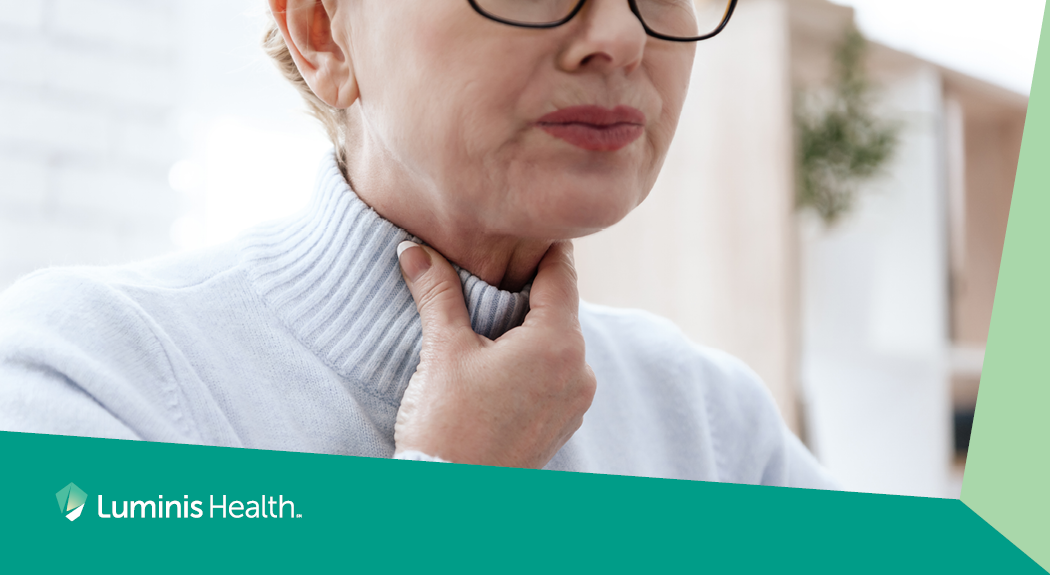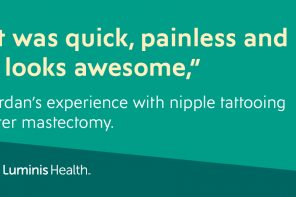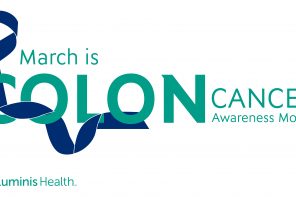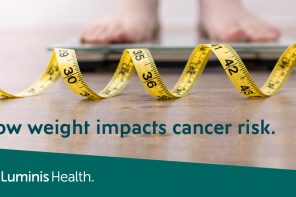Family history plays a large role in the risk of some cancers, such as breast, colon and prostate cancers. Esophageal cancer, however, is rarely linked to genetics. For Esophageal Cancer Month, our experts look into the most important risk factors for this cancer.
The two leading risk factors for esophageal cancer are extensive use of tobacco products and high alcohol consumption. According to the American Cancer Society, someone who smokes a pack of cigarettes a day or more is two times more likely to develop esophageal cancer compared to a nonsmoker. Other risk factors include:
- Age – > 55 years old
- Sex – four out of five esophageal cancer diagnoses occur in men
- Obesity
- Lack of physical activity
- Injury to the esophagus
- Heartburn/acid reflux
- Diagnosis of Barrett’s esophagus
Not all esophageal cancers can be prevented, but you can greatly reduce your risk by controlling these lifestyle risk factors. Here are a few steps you can take to prevent it:
- Avoid alcohol – it is best to not drink alcohol. If you choose to drink, drink moderately, limiting intake to no more than two drinks per day for men and one drink per day for women (definition per the Centers for Disease Control).
- Avoid tobacco – it is never too late to quit smoking. Call Luminis Health at 443-481-5388 for free resources to help you quit.
- Watch your body weight – Work towards a healthy weight by limiting red and processed meats, sugar-sweetened beverages, highly processed foods, and overall caloric intake.
- Be physically active – Adults should get 150 to 300 minutes of moderate intensity or 75 to 150 minutes of vigorous intensity activity each week. Daily walks are an excellent way to start.
These lifestyle changes can help prevent esophageal cancer as well as other cancers and illnesses. Talk to your primary care provider if you experience frequent heartburn/reflux symptoms, have increased difficulty swallowing, or are losing weight unintentionally, as these may be signs of esophageal cancer.
About the Author: Antony Koroulakis, MD is a radiation oncologist with experience treating a wide range of cancers.




